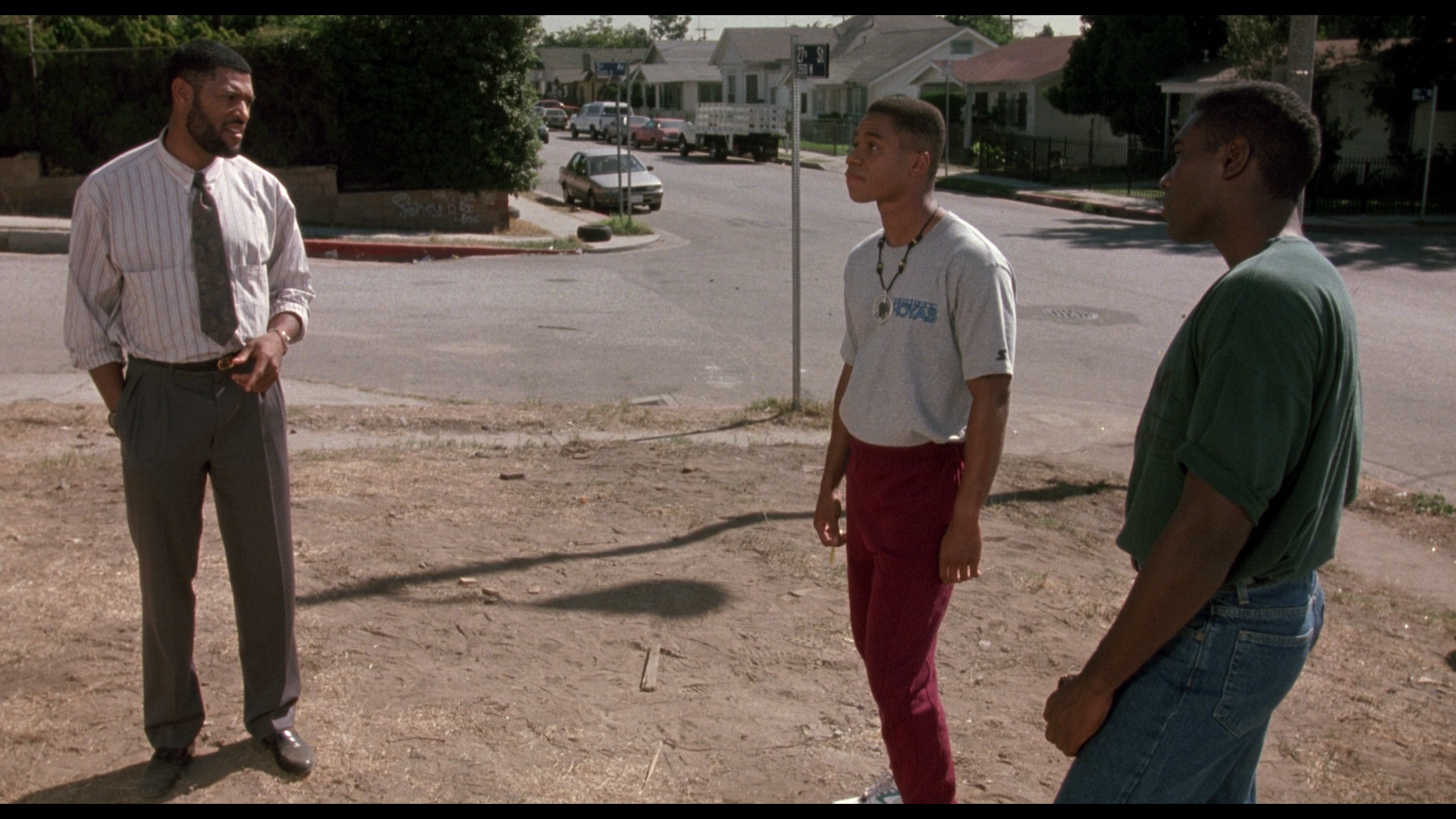Until Boyz N the Hood came out, the only way African Americans could see themselves on screen in a real, complex way was in a Spike Lee Joint. I love Spike, but John Singleton’s masterpiece is nothing short of a force of nature. Exuding exemplary power and style for a first feature, Singleton paints a portrait of the black experience that remains unmatched in cinema to this day: a perpetually timely and timeless piece of art and empathy toward an underserved, marginalized race in American cinema.
Singleton’s story revolves around Tre Styles (Cuba Gooding Jr.). His mother (Angela Bassett), worried about her ability to parent her child as he becomes a man, sends Tre to his father’s (Laurence Fishburne) house, hoping Tre will learn the proper way to become a man. Tre makes friends along the way: Ricky (Morris Chestnut) is the star athlete of the high school, and Ricky’s half brother Dough Boy (Ice Cube) is soon to be the leader of some sort of gang enterprise on the streets. Their collective coming of age has some of the same issues high school movies have (chasing girls, studying for a big test) as well as additional, usually more urgent concerns (pervasive day to day threat of violence).
Singleton’s greatest feat is crafting the feeling of growing up black in the city in the United States. Every 5-10 minutes, a helicopter, close to the ground, flies over the Los Angeles projects, creating a deafening noise for a few seconds initially, that slowly starts to give way the feeling like you’re trapped and they’re closing in. Who’s they in this scenario? “They” morphs minute to minute, day to day. It could be little: a group of older teens stealing your prized football. It could be obvious: a rival gang, or the police mistaking you for a suspect. Or it could be systemic: biased “standardized” testing or real estate limitations. Minute by minute, Tre, Dough Boy, or Ricky could be fine, but one of these oppressive “they’s” could box them in again, threatening their simple basic goal of merely growing up. If they fight against it, that could lead to dire consequences.
All these could come off as bleak and hopeless, but Singleton is no dumb filmmaker. There’s something hopeful and deep despite all the desolation. To the “they,” for example, Dough Boy comes across to the “they” like a thug or drug dealer who hurts and likes it. In Singleton’s hands, he’s much more complex: a sweet, caring friend and son given a raw deal and doing the best he can with a tough situation. He ain’t stupid: he’s a survivor. Intelligence is all over every character in this movie. If not, book smarts, at least street smarts. We see black people pontificate about God, endless violence, cultural bias in the housing market, how to parent a child and a man, PTSD, etc. Topics like this simply didn’t exist before Boyz N the Hood, at least not in the hands of African American actors and actresses.
And what a cast this is: one of the finest put together, regardless of color. Cuba Gooding Jr., Morris Chestnut, and Ice Cube are all excellent as our 3 main characters. Ice Cube especially is a revelation: there’s not a minute you’re not mesmerized by what he’s doing onscreen. Similarly mesmerizing are Laurence Fishburne and Angela Bassett. I could watch a whole movie about them if they’re as engaging in their brief scene at dinner (we got it a couple years later: What’s Love Got to Do With It). Regina King and Nia Long pop off the screen as well in early roles for them both. With this much talent bringing their A game, Boyz N the Hood was always going to be something special.
Movies are at their best when they give us insight into a story previously untold. Boyz N the Hood is bigger than that: it’s an insight into millions of untold stories for a race of people, and what their life is like as they grow up. Boyz N the Hood is one of those rare, amazing stories that can change you the minute you see it. It provides you understanding, empathy, and perspective, unveiling what was previously veiled, or giving a voice to the previously voiceless.

